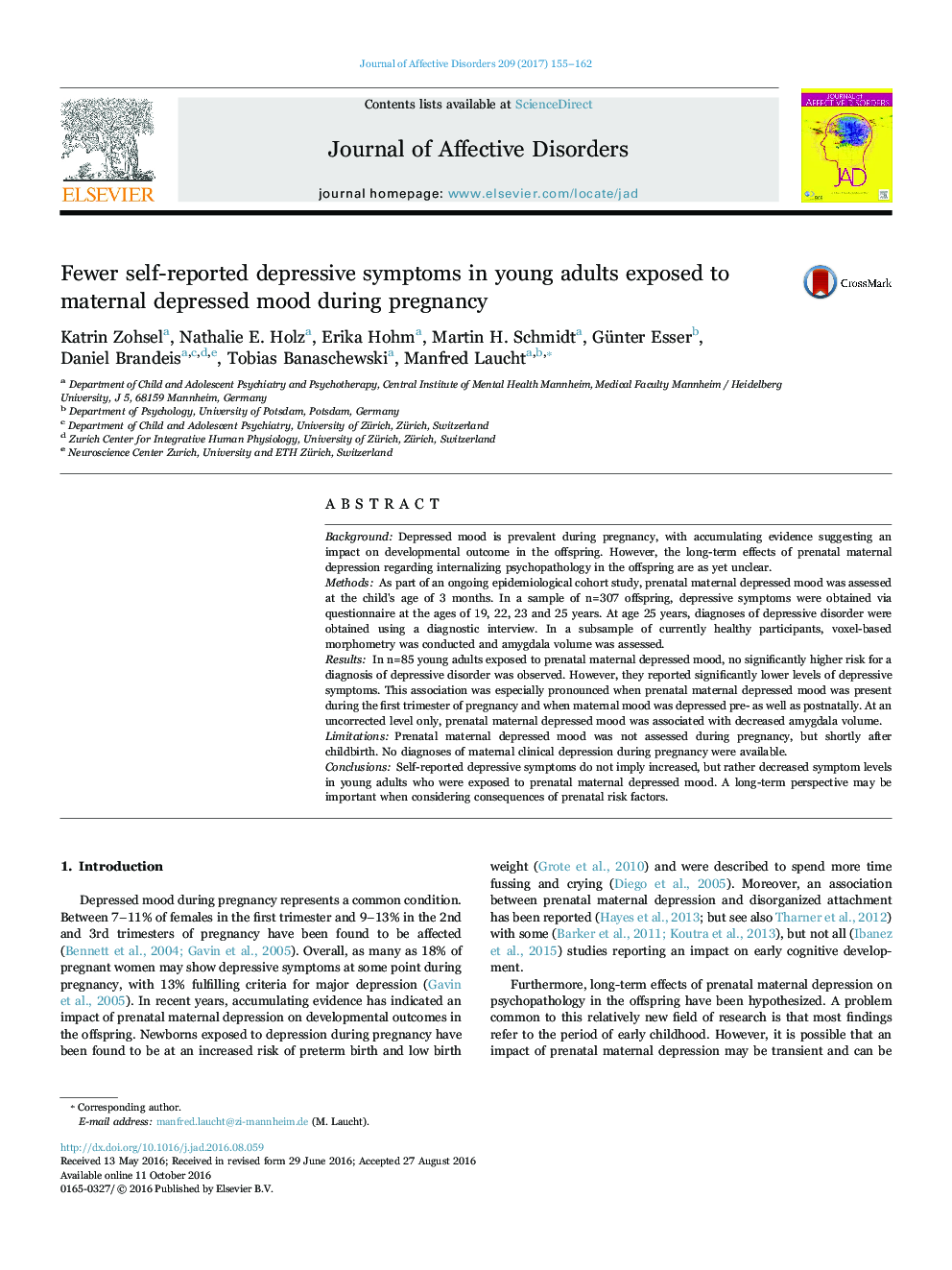| Article ID | Journal | Published Year | Pages | File Type |
|---|---|---|---|---|
| 5722280 | Journal of Affective Disorders | 2017 | 8 Pages |
â¢The long-term impact of prenatal depression on offspring psychopathology is unclear.â¢We assessed prenatal depressed mood and followed up n=307 offspring until age 25.â¢Depressive symptoms (BDI) were lower in offspring of prenatally depressed mothers.â¢Risk for clinical diagnosis of depression in young adulthood was not enhanced.â¢Amygdala volume tended to be decreased (at an uncorrected level).
BackgroundDepressed mood is prevalent during pregnancy, with accumulating evidence suggesting an impact on developmental outcome in the offspring. However, the long-term effects of prenatal maternal depression regarding internalizing psychopathology in the offspring are as yet unclear.MethodsAs part of an ongoing epidemiological cohort study, prenatal maternal depressed mood was assessed at the child's age of 3 months. In a sample of n=307 offspring, depressive symptoms were obtained via questionnaire at the ages of 19, 22, 23 and 25 years. At age 25 years, diagnoses of depressive disorder were obtained using a diagnostic interview. In a subsample of currently healthy participants, voxel-based morphometry was conducted and amygdala volume was assessed.ResultsIn n=85 young adults exposed to prenatal maternal depressed mood, no significantly higher risk for a diagnosis of depressive disorder was observed. However, they reported significantly lower levels of depressive symptoms. This association was especially pronounced when prenatal maternal depressed mood was present during the first trimester of pregnancy and when maternal mood was depressed pre- as well as postnatally. At an uncorrected level only, prenatal maternal depressed mood was associated with decreased amygdala volume.LimitationsPrenatal maternal depressed mood was not assessed during pregnancy, but shortly after childbirth. No diagnoses of maternal clinical depression during pregnancy were available.ConclusionsSelf-reported depressive symptoms do not imply increased, but rather decreased symptom levels in young adults who were exposed to prenatal maternal depressed mood. A long-term perspective may be important when considering consequences of prenatal risk factors.
